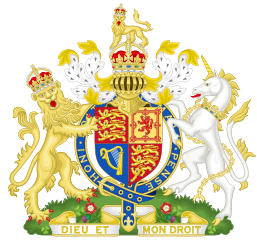Royal biographer Hugo Vickers wrote a piece about wills of British royals for the Telegraph.
https://www.telegraph.co.uk/royal-f...eth-ii-aunt-kept-secret-prince-frank-of-teck/
Some excerpts:
[...] Up until 1911, it was only the sovereign’s will that was kept behind closed doors. That all changed due to the antics of Prince Frank of Teck, the wayward brother of Queen Mary (Princess Mary’s mother).
The gambler and troublemaker – he’d been expelled from Wellington College, Berkshire, “for throwing his housemaster over a hedge to win a bet” – had had an affair with society beauty Ellen, the wife of the Earl of Kilmorey, and thus bequeathed her the famous Cambridge emeralds in the will he wrote in 1902. (He died in 1910.) To cover up the scandal and recover the jewels, Queen Mary succeeded in getting his and all subsequent wills of extended Royal family members sealed.
[...]
While we do not know what is in most royal wills, in respect of the dispositions within them, we do know how much money they left in total, because that is published. For example, we know that Princess Mary [who died in 1965] left a total of £347,626, reduced to £328,224 after death duties, which works out at around £5.6 million in today’s money.
[...]
[Queen Mary] persuaded her son Prince Henry, Duke of Gloucester, to appoint two of Queen Victoria’s spinster granddaughters, Princess Helena Victoria and Princess Marie Louise, as godmothers to his sons, William and Richard (the present Duke). As Queen Mary hoped, the princesses left their estates to the boys.
[...]
Some kept things blissfully simple. The Queen Mother, for example, left everything to Elizabeth II, who then distributed a selection of bequests to members of the Royal family as a way of saving death duties. Others, meanwhile, were just plain irritating: upon her death in 1959, Princess Arthur of Connaught, Duchess of Fife left the striking Mar Lodge estate in the Cairngorms to one nephew, Captain Alexander Ramsay… and its contents to another, the Duke of Fife.
[...]
One will that was emphatically blown open, however, was that of Diana, Princess of Wales, in 1998. Hers was made public by her lawyers at Mischcon de Reya, as it was deemed to be in the public interest – and by the time of her death, she was no longer technically a member of the Royal family. Her estate of £21,711,485 was largely divided between her sons, William and Harry with £50,000 given to her butler, Paul Burrell, and certain keepsakes to her 17 godchildren. Evidently there was controversy: the original plan was that all of her jewellery and 75 per cent of her personal belongings (“chattels”) be passed on to her two sons and 25 per cent to her godchildren, but her mother and sister challenged this in the probate court. In the end, the godchildren merely got “tacky mementos” (so the story goes), while her sons’ age of access to their inheritance was raised from 25 years to 30.
In earlier times there were monarchs who tried to alter the line of succession in their wills. Michael Nash, who has made a comprehensive study of them – Royal Wills in Britain From 1509 to 2008 – digs deep into the many shenanigans. Amongst other things, he tells us that Queen Adelaide’s will was deemed invalid when presented for probate, and that Elizabeth I and Queen Alexandra were so suspicious of lawyers that they refused to make wills at all.
[...]


